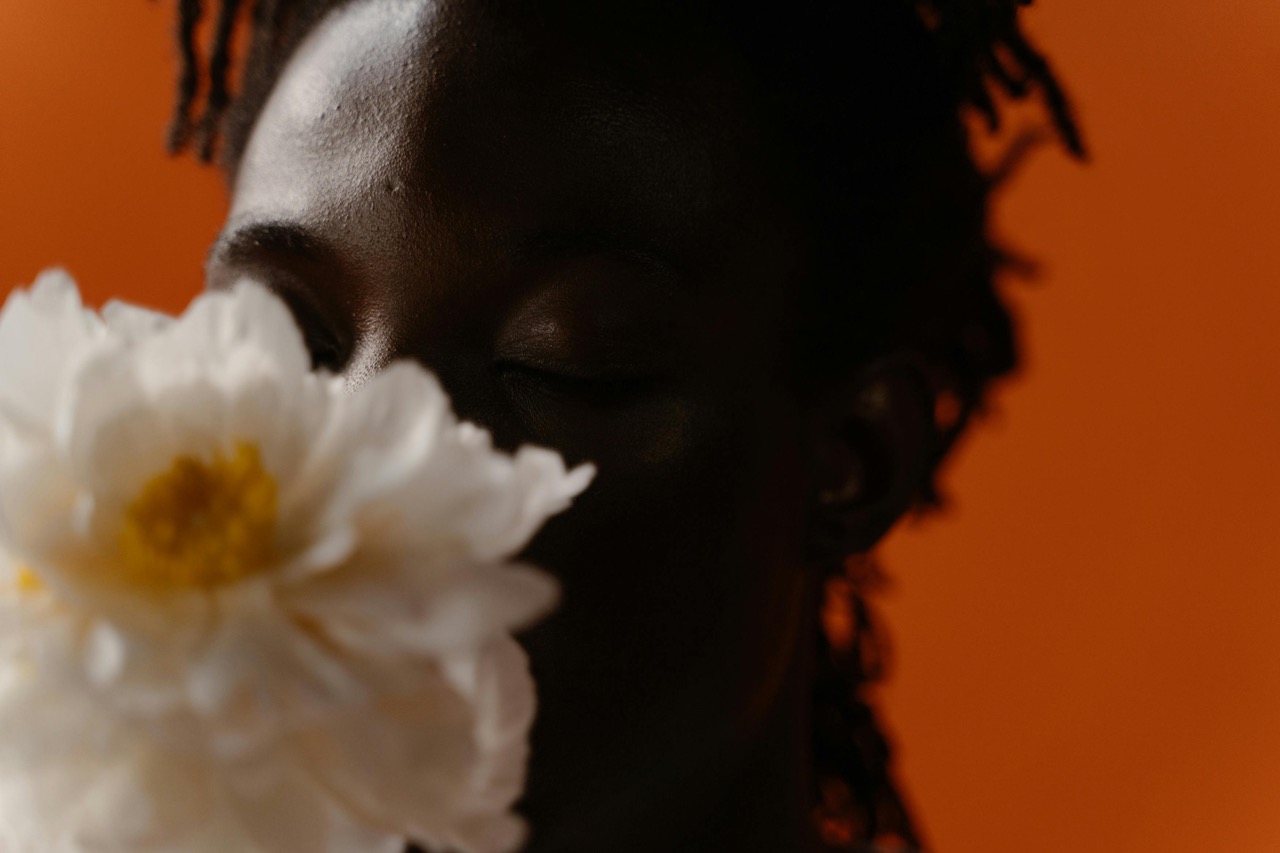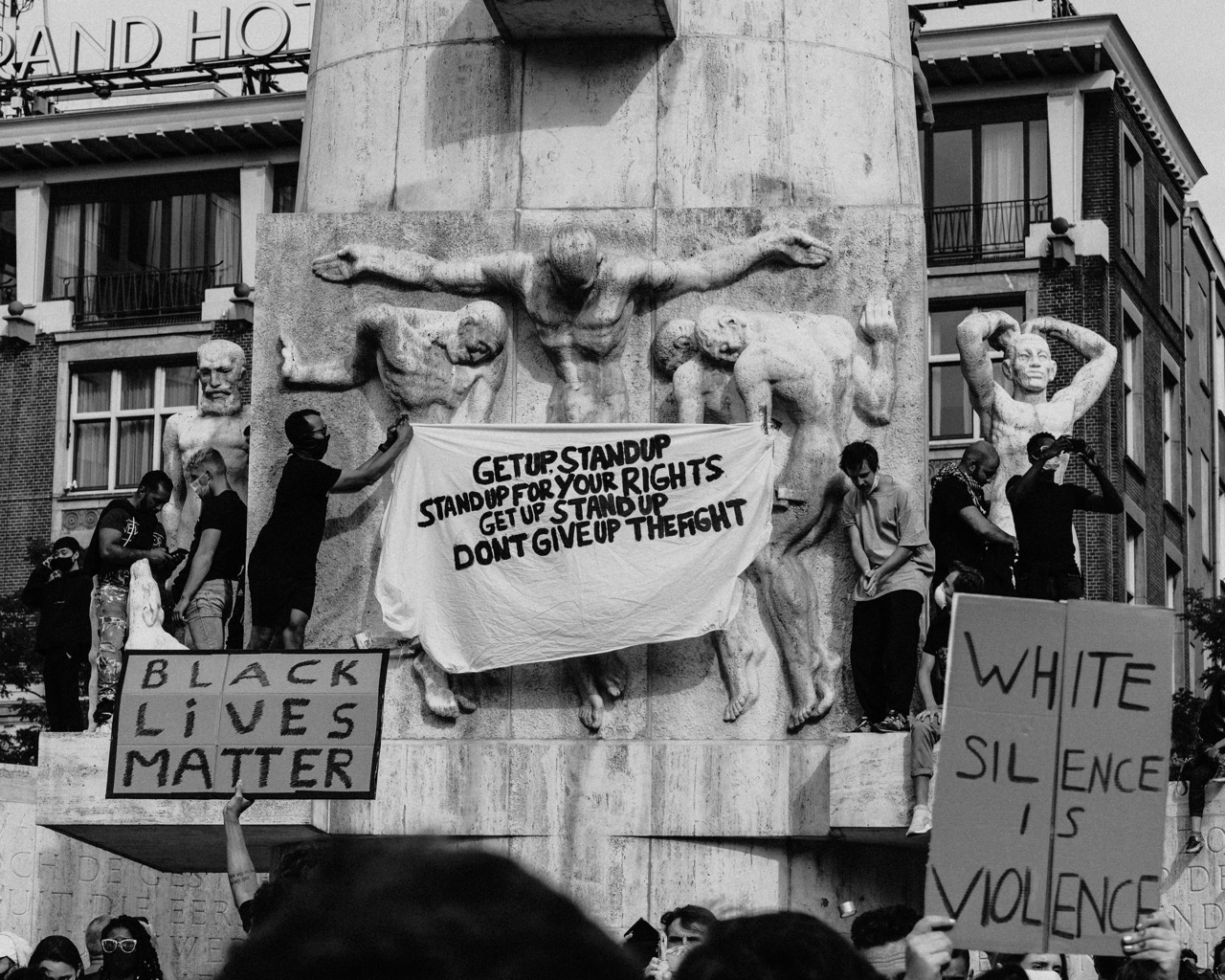Feminist Reads: Anti-Racism and Decentring Whiteness


We’re republishing this post, originally published on 3 June 2020, because it remains one of our most visited and resonant pieces. At the time, we wrote it in response to the brutally racist murder of George Floyd in Minneapolis, US, by four policemen in broad daylight. Before him, there was Breonna Taylor, shot dead in her own apartment by officers who used a battering ram to burst through her front door. Before that, Laquan McDonald, Eric Garner, Michael Brown, Sandra Bland, Tamir Rice, Walter Scott…
The list goes on — a relentless tally of Black people murdered by police who rarely face consequences for their actions.
99% of killings by police from 2013-2019 have not resulted in officers being charged with a crime. George Floyd’s death has sparked outrage across the country and the world. It has catalysed protests in hundreds of cities, demanding justice and an end to police brutality and systemic racism.
While the vast majority of protests have been peaceful, some demonstrations have become violent. We’re now watching as, all across the US, ongoing police brutality, and excessive force is being used to manipulate, silence, harm, and even kill, protestors who are standing up for Black lives. It’s become a global conversation.
The vast majority of protests are peaceful. Wherever violence has broken out, we cannot let it shift the debate away from the main issue – the need to end police brutality, systemic racism and white supremacy.
As Dr Martin Luther King Jr said in 1967, “It is as necessary for me to be as vigorous in condemning the conditions which cause persons to feel that they must engage in riotous activities as it is for me to condemn riots…a riot is the language of the unheard.”
The #blacklivesmatter movement calls for the end of white supremacy, police brutality and the ongoing murders of Black folk. We live in a world founded on the system of white supremacy. This might seem like an extreme statement, but it’s the truth. Countries such as Australia and the United States were built on a history of colonisation, slavery and genocide, and set up systems that reinforce inequalities to keep white people in positions of power. If you’d like to learn more, please head here. Black men often bear the brunt of police brutality. But, the femicide of Black trans women is of epidemic proportions in the US and countless Black women have also died. We must not forget this. The #blacklivesmatter movement recognises that ALL Black lives matter.
As we see outrage and solidarity for the Black Lives Matter movement all around us, it’s clear that the same outrage is not given when Indigenous folk are killed by police here in Australia. More than 435 Aboriginal and Torres Strait Islander people have died in custody since the end of the royal commission into Aboriginal deaths in custody in 1991. You can learn about Aboriginal deaths in custody here. There is a long history of police brutality, disproportionately high rates of incarceration of Indigenous folk, removal of children from Indigenous families and the stripping of rights from Aboriginal and Torres Strait Islander people in so-called Australia.
Whilst we have spoken about these issues in the past few years that we’ve had a platform, we believe it’s time to yell.
It’s as simple as this: people are being killed. Regularly. Because of the colour of their skin.
Furthermore, while white supremacy is a system you may not have helped set up, it is a system you help maintain and uphold. If you’re not actively anti-racist, and instead choose to stay silent, you’re signalling that not only are you okay with a system that kills people based on their identity, but you’re also okay with doing nothing about it.
“If you are neutral in situations of injustice, you have chosen the side of the oppressor.” – Desmond Tutu
Now is not the time to be silent. Now is the time to yell, to take action and to demand that individuals, communities, corporations and governments take action as well.
Say something. Use your platform – whether that be conversations with family and friends, a social media platform, your workplace, marching in the streets – to talk about this! We need to keep the conversations going today, and every day, until there is justice.
Show up to protests. There are protests happening all over the world. If you can, show up. See the next section on staying safe while protesting. Please remember not to share images of people protesting with identifiable features – these photos have previously been used to identify, trace and “disappear” people.
Use your privilege to protect others. This is so important. If you’re white or white-passing, stand at the frontlines. Police and armed forces are much more likely to be violent with people of colour than white folk. Physically protect the Black and Indigenous folk around you.
Sign petitions. Petitions can create change. Here are some petitions you can sign in relation to the #blacklivesmatter movement:
Find more petitions here. See petitions specifically supporting First Nations folk at the Path to Equality.
Demand change from people in positions of power. Write to your local government demanding action. Call out brands and organisations who have stayed silent. Be relentless.
If you’re in the US, demand the establishment of use-of-force policies, transparency, accountability and the end of the militarisation of the police force. In departments with policies that sharply limit when, where and how police officers may use force, shootings and killings by the police are much lower. Get more info here.
Call out inaction. There is no space for inaction. Call out friends, colleagues, brands, influencers, governments. We must ALL be engaged with this work.
Commit to doing anti-racism work. Understand that you need to do work to be actively anti-racist. You need to understand your privilege, your complicity in the system, what racism means, how it affects people of colour, and what ways you can use your power to create change.
Prioritise your safety. We recommend wearing comfortable clothes that cover up identifiable features such as tattoos as well as goggles, earplugs and a mask. Bring water and sustenance, like a banana, as well as hand sanitiser. The global pandemic continues and it’s important to take protective measures to keep yourself and others safe from COVID-19 while protesting. A mask can also help to protect your identity should you happen to be filmed. If you can, we also recommend bringing first aid equipment and avoid wearing contact lenses which can trap chemicals. For more tips on staying safe while protesting, visit here.
Attend with friends and agree on an emergency plan. Stay tight in your group and move fast to avoid police. Barricade the back of the protest to blockade police and slow traffic. Avoid endangering other people. Don’t linger if someone is arrested and know your rights, in case you are arrested. You can find out information on your rights whilst protesting in the US here, in Australia here and in Britain here.
After attending protests, we recommend you self-isolate for at least two weeks in order to protect your community from possible coronavirus transmission. Don’t share images where protestors can be identified. If you film footage in the US, submit it to the National Lawyers Guild, where it can become public record and can be used for prosecution.
Here’s some information on how to protect yourself from tear gas, or if you’ve been shot.
Use your money to support people directly affected and Black and Indigenous-owned organisations. Here is a short list of where you could start:
Please also see our section below on mental health resources for Black folk, which you can either seek help from or donate to.
Centre and amplify Black and/or Indigenous voices. While it’s important for all people to speak up, try not to speak over people who are directly affected by this movement. We recommend amplifying the voices of Black and Indigenous people, especially women and gender-diverse folk. Follow activists online, share their work, credit them when you do. But please don’t ask Black and Indigenous folk to do the work. Do your own research, google things, educate yourself! Here are some accounts we recommend the following:
Consume media by Black and/or Indigenous folk. Follow activists online. Diversify your news sources to media outlets that aren’t owned by Rupert Murdoch. Watch films and TV shows, read books and articles, go to live events such as theatre and comedy, consume music, podcasts and art by people who are Black and/or Indigenous. Here are some podcasts we recommend:
Use your money to support Black and Indigenous-owned businesses. Put your money where your politics are. Do your research to find businesses that are Black and/or Indigenous-owned or that directly support communities. Google the Tulsa massacre of Black Wall Street. Pay the rent.
Do all of these things not just now, but always. Take action every day. The work does not end when the hashtags stop trending. For people who are Indigenous and/or Black, the reality is living with this issue every moment of every day. So do the work.
A wonderful place to start with doing anti-racism work is acknowledging that we all are complicit in racism. For a better understanding of this, visit here. The next step is to educate yourself. Start by reading some of these books:
Please see this resource for more information on how to do anti-racism work.
Experiencing trauma can have psychological, physical and physiological impacts. Being Black and/or being Indigenous is inherently traumatic when you live in a society which is built on white supremacy, slavery and colonisation. If you’re feeling affected by all of this, please seek help. Please know that it’s a normal reaction to trauma. Please reach out to your support networks. Please call your local helpline.
You can find a directory of mental health support for Mob, Maori & BIPOC here. If you’re an Indigenous man, you can also call 1800 435 799 for the ‘Brother to Brother’ 24hr hotline: a culturally safe mental health service.
Here is an article for Black folk struggling with watching this unfold across the media. And here are other few mental health resources for Black folk:
If you’re feeling affected by this and you’re not Black and/or Indigenous, know that it’s normal, but do not shy away from it. Get used to being uncomfortable. Racism, violence and murder are not comfortable topics. If you’re feeling affected by being surrounded by this stream of information, imagine how it feels to be living it as a reality every day. The least you can do is be uncomfortable. That being said, we do believe that self-care is a priority. You need to take care of yourself to be able to do the work. Know when you need a break. But – take action.
We send out love and strength to every person dedicated to being a part of the #blacklivesmatter movement. We must yell. We must take action. We must care for one another. We WILL create change.
The land we live and work on always was, and always will be, Aboriginal land. We pay our respects to the Traditional Custodians of Country throughout Australia and acknowledge the ongoing leadership role of Aboriginal & Torres Strait Islander communities in preventing violence against women. We also acknowledge Traditional Custodians of the lands where EQI works around the world.
Read MoreYou have been logged out.
"*" indicates required fields